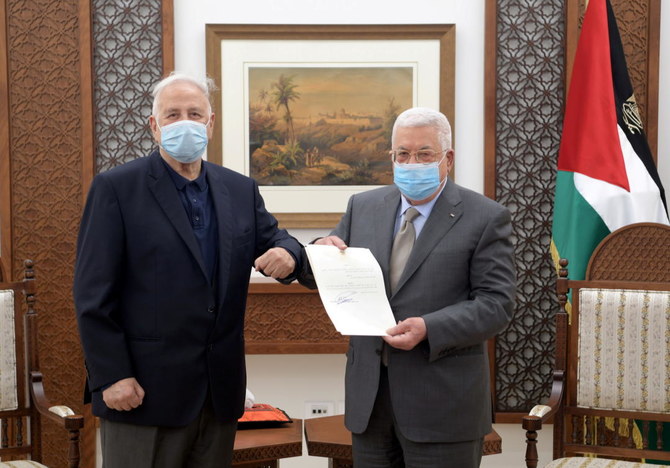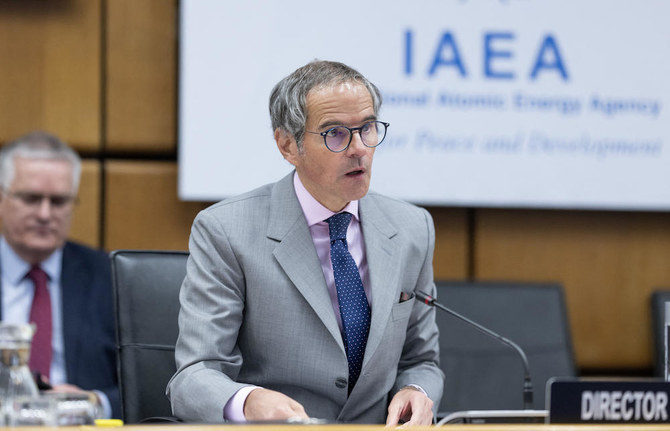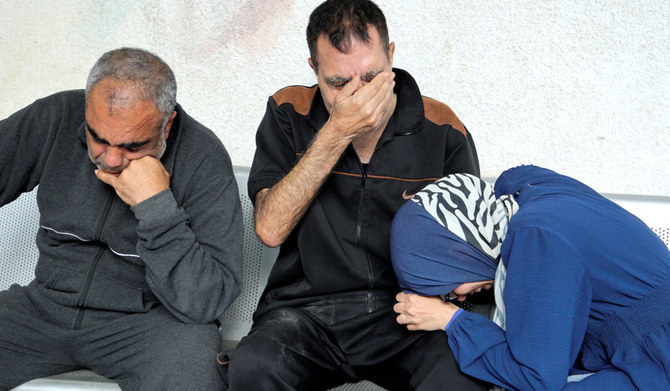CAIRO: Palestinian factions met in Cairo on Monday to discuss reconciliation and explore mechanisms for holding elections.
There are 14 factions taking part. They include delegations from the Popular Front for the Liberation of Palestine (PFLP), Hamas, Islamic Jihad and Fatah.
PFLP political bureau member Jamil Mizher said: “We are in a round of great importance with regards to the comprehensive national dialogue in Cairo. The Palestinian people, at home and abroad, have high hopes for the results of the dialogue. If all the parties have the real will, we can move forward to put an end to this black division and we can regain national unity.”
He said it was important to put all disputes on the table to reach a national consensus that would pave the way for a new era of the Palestinian struggle, whereby all factions could take part to reestablish the Palestinian political system.
“There are obstacles and hurdles,” he added. “We hope that everyone puts aside all the disputes and conflicts and not to allow foreign interference so we can reach an agreement that would spare the Palestinian people the ravages of the catastrophic division.”
Hamas spokesman Hazem Qassem said the movement’s delegation included Saleh Al-Arouri, who is deputy head of the political bureau, Yahya Sinwar, Dr. Khalil al-Hayya, Izzat al-Rishq, Hussam Badran, Muhammad Nazzal, and Ruhi Mushtaha.
Al-Hayya said: “The Palestinian national powers have high hopes and an expanded vision to remove the obstacles hindering the electoral process whether regarding the judicial dimension or freedoms or other issue.”
The Islamic Jihad delegation is led by Dr. Muhammad Al-Hindi, who is head of the political department. It also includes Dr. Anwar Abu Taha, Sheikh Nafez Azzam and Khaled Al-Batsh.
Sources said the Fatah delegation was headed by Jibril Rajoub and included Azzam Al-Ahmad, Rouhi Fattouh, Ahmed Helles and Samir Al-Rifai.
The agenda for the meeting, which Cairo called for, includes discussing the mechanism for holding legislative elections, legal and technical measures related to the electoral process, issues concerning the constitutional court and elections court, means of guaranteeing personal freedoms, and list formation.
Daoud Shehab, who is leader of the Islamic Jihad Movement in Palestine, said: “We are going to Cairo with a national vision, mainly based on the need for Palestinians to agree on a political program. What is more important than going to the elections is to agree on a political program. Unless we agree on a political program, the elections would be a new attempt or just an attempt to reproduce the previous phase with all its negative aspects.”
He added that Islamic Jihad’s stance toward participating in elections would be determined after this round of dialogue had concluded.
“We went to Cairo with a national vision that includes the separation between the authority and the organization, in addition to the separation between the legislative council elections and the national council elections.”
The last Palestinian Legislative Council election was held 15 years ago and was halted due to divisions between Hamas, which controls the Gaza Strip, and the Palestinian Authority in the West Bank.
Fahd Soliman, who is deputy secretary-general of the Democratic Front for the Liberation of Palestine, said that all parties at the dialogue had the intention of holding elections.
What would be discussed at the meeting were the mechanisms guaranteeing the transparency and smoothness of the electoral process as well as the means of monitoring the elections, he added.
He told Al-Ghad TV there was consensus at the popular and factional level to hold elections, saying polls represented the cornerstone of what had been agreed on and that the Cairo meeting would discuss this issue in detail.
The factions are also due to discuss holding the elections in Jerusalem, an issue that has not been settled with the Israelis yet.



















